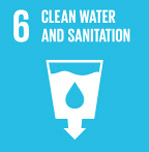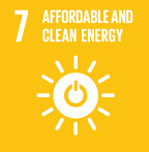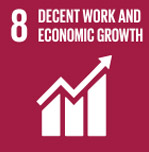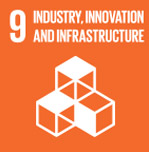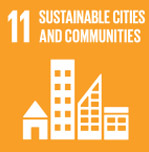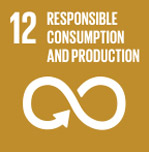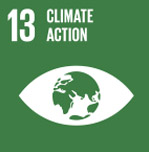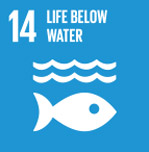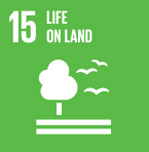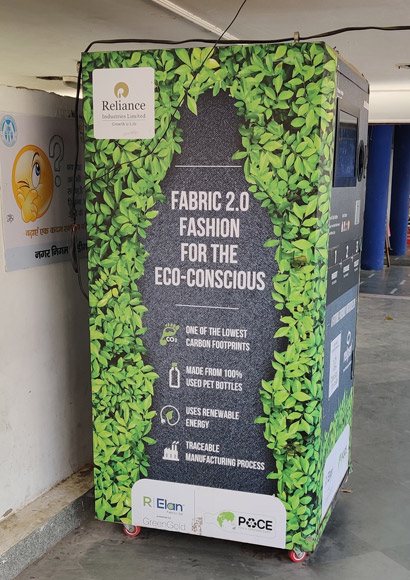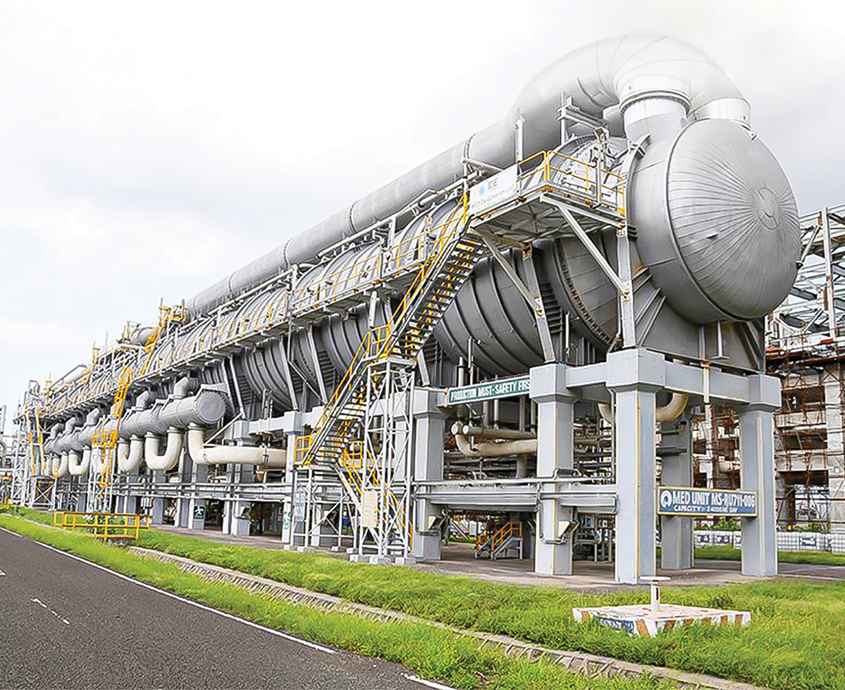Highlights FY 2021-22
Committed to
invest in Solar
and Hydrogen
Giga factories,
value chain,
partnerships
and future
technologies
352%
Increase in Renewable Energy
Consumption in RIL
2.11million GJ
Energy savings through conservation
efforts in RIL
1.64%
Reduction in GHG emission in RIL
RJIL received 'A-' in
CDP 2021 which is
in the Leadership
band
This is higher than the Asia regional
average of 'B-', and higher than the
Media, telecommunications & data
centre services sector average of 'B'.
The Company will also invest
in enhancing the value chain,
partnerships, and future technologies,
including upstream and downstream
industries. Its multifaceted
projects include:
- Integrated PV manufacturing from
sand to PV modules, including
building an ecosystem of
ancillary units
- Battery chemicals and components,
cells and pack manufacturing and
energy storage system
- Electrolyser and
Hydrogen value chain
- Power generation to ensure round-the-clock availability
- Power generation for
production of Hydrogen
- Conversion of
Hydrogen to chemicals
- Power electronics systems
required to support renewable
energy such as inverters, chargers,
DC-DC converters
- Renewable energy for mobility
Management approach
Reliance has a robust governance
framework to track, assess, and
improve how it manages its
natural capital consumption. The
Company has implemented annual
environmental and sustainability
action plans that are regularly
assessed and revised.
Reliance adopts a comprehensive
strategy at the Group level that
establishes company-wide HSE
objectives and processes for plant
operations to promote operational
discipline and performance. The
Company has developed a well-
defined HSE audit programme to verify
that management standards are
followed across its operations.
The Group Safety and Operational Risk
team monitor the quarterly evaluation
of business plans. They also regularly
perform independent reviews of
environmental aspects at the segment
and site levels. The asset lifecycle
is covered by a comprehensive
review system, which includes the
phases of implementation, operation,
and closure. Reliance continues to
strengthen its compliance systems
and processes through rigorous
internal and external audits.
The Board level CSR and Governance
committee has oversight on
Foundations and its related disclosures.
The Board level monitoring at regular
intervals is a testimony to the proactive
approach taken by Reliance to ensure
responsible and sustainable growth.
Environmental Performance
Managing Environmental
Impact
Reducing the environmental footprint
across Reliance's businesses is key
to its operational performance.
The Company's environmental and
sustainability stewardship ensures that
its manufacturing sites meet consent
terms and environmental regulations
beyond compliance. Reliance
complies with all applicable laws and
regulations and periodically audits
operations to confirm compliance. The
Company ensures that its employees
are regularly trained and updated
on changing laws and regulations,
measures to prevent pollution,
minimise waste and other solutions to
reduce environmental impact.
The Company adopts comprehensive
measures and advanced technology
to reduce waste, energy and water
usage. It is also focused on reducing
and eliminating flaring and venting
of feed and product gases, including
volatile organic compounds. Reliance
tracks, streamlines and manages GHG
emissions across its manufacturing
units. Retrofitting investments are made
across every manufacturing division
to reduce the environmental impact
and energy consumption. Real-time
monitoring of stack emissions through
Continuous Emission Monitoring
System (CEMS) has enabled Reliance
to adhere to local standards for
parameters like SOx, NOx and TPM
emissions. Initiatives like converting
organic waste into bio-manure
through vermicomposting, stringent
monitoring measures to prevent
spills during storage, safe handling
and transportation of hydrocarbon
materials, have significantly reduced
the negative environmental impacts of
its operations.
The air emissions recorded for RIL includes:
| Parameters |
Unit |
FY 2021-22 |
FY 2020-21 |
FY 2019-20 |
FY 2018-19 |
| TPM |
‘000 ton |
1.81 |
2.02 |
1.85 |
2.29 |
| SOx |
‘000 ton |
20.74 |
21.61 |
22.53 |
22.61 |
| NOx |
‘000 ton |
37.85 |
39.88 |
42.01 |
34.43 |
| VOC |
‘000 ton |
46.66 |
41.31 |
46.15 |
41.88 |
Energy Efficiency of
Operations
Reliance recognises its obligation
towards climate change-related risks.
As a global player, it is incumbent
upon Reliance to overcome the
challenges of transitioning to a lower
carbon regime. The Company has
in place best-in-class technologies
and good operations & maintenance
(O&M) practices that ensure optimal
energy consumption at applicable
sites. During FY 2021-22, the energy
efficiency improvement initiatives
resulted in energy savings of 2.11
million GJ for RIL.
Dedicated Energy Teams pursue
relentless monitoring of energy
performance at all sites and at the
group level. The Company uses
in-house mechanisms to monitor
different energy usage parameters in
real-time. Along with tools to facilitate
decision-making, simulation and
visualisation of energy efficiency,
the monitoring system is also
integrated with production control
systems that make the Company’s
energy management system agile,
flexible, and effective. Energy audits
and benchmarking studies are also
conducted periodically to identify
performance gaps.
RIL adopts a strategy to manage energy based on the five tenets of
energy management:
Eliminate unnecessary energy use through process and heat
integration, quick restoration of equipment performance,
consumption optimisation using simulation models, and
reduce-recover-reuse programmes.
Improve energy usage efficiency using simulation tools,
deploying best practices, and upgrading equipment
and technology.
Adjust operations to reduce energy consumption by
redesigning the product basket and optimise the use of
installed capacity.
Optimise the cost of energy consumed through an
enterprise-wide fuel planning and scheduling mechanism.
Reduce carbon intensity by judicious selection of energy
sources and ramping up renewable energy use to offset
emissions from fossil fuels.
Across manufacturing sites, the
Company has taken up energy
optimisation and waste heat recovery
projects, co-firing biomass with
fossil fuel, opportunistic equipment
upgrades and flare gas recovery
to improve energy efficiency and
resource conservation. The O2C
manufacturing sites at Barabanki,
Dahej, Hazira and Hoshiarpur have
utilised 3.09 million GJ of bio-energy.
The Company has also achieved a
16% reduction in flaring at E&P and
O2C sites compared to FY 2020-21.
This year the volume of flared and
vented hydrocarbons was
1,32,491 MT.
530.20 million GJ
Total Energy Consumption in RIL
3.12 million GJ
Renewable Energy Consumption
in RIL
Reliance Retail has undertaken several
measures, including the upgradation
of conventional equipment and
rooftop insulation of warehouses
to improve energy efficiency. The
Retail team is encouraging the use
of day lights and HVLS fans to reduce
the overall energy consumption of
warehouses and stores.
The Reliance digital business
accounts for one of the lowest
carbon intensity per TB of data
usage with the right energy systems
in place. In the last financial year,
Jio had a total energy consumption
of 6.69 million MWh out of which
65,283.53 MWh was wheeled from
renewable sources.
Reliance Jio Infocomm Limited’s
energy efficiency projects and
measures are an important part of
achieving its carbon reduction goals
and Net Zero emissions milestone. As
a fast growing telecommunications
company in India, it has introduced
initiatives and measures to optimise
energy consumption at all facilities.
These include:
- Energy saving technology feature
implementation in 2.3 GHz Time
Division Duplex band which entails
turning off radios during non traffic
hours (02:00 AM and 05:00 AM).
- Hot Aisle and Cold Aisle separation
by installing cold air containment to
avoid mixing of cold and hot air.
- Smart lighting system and motion
sensors implementation for lighting
load reduction in all Server Halls.
- Diesel Generator (DG)
demobilisation implementation for
identified sites where low utilised
DGs are replaced with a 100 AH
additional Li-ion battery.
- Optimising DG run hours by
prioritizing site operation on battery
before DG in absence of grid power.
Climate Change
Reliance has always been cognisant
of the impending climate change
and the effect it can have on the
future. In FY 2021-22, the Company
ensured that it will continue its
business-wise endeavours so that it
is on its track to become a Net Zero
organisation. It understands that
controlling the increase of global
temperatures by 1.50C above pre-
industrial levels is no longer a choice
but a necessity and Reliance has
been extremely proactive in taking
exemplary strides to decarbonise
its operation. The Reliance O2C
business is deploying several energy
conservation solutions using next-
generation digital technologies. It
has integrated Internet of Things (IoT)
and Machine Learning (ML) solutions
in oil fields, repurposed petcoke
gasification to utilise synthesis gas
to produce chemicals and hydrogen
and generate synthesis gas on a
renewable basis through biomass
gasification . Reliance Retail has
initiated the use of battery-operated
equipment for material handling to
eliminate fossil fuel consumption.
It ensures that idle trucks in waiting
areas turn off their ignitions, reducing
emissions, noise levels and fuel
consumption. The heavy investments
have been instrumental in helping
Reliance manage its footprint.
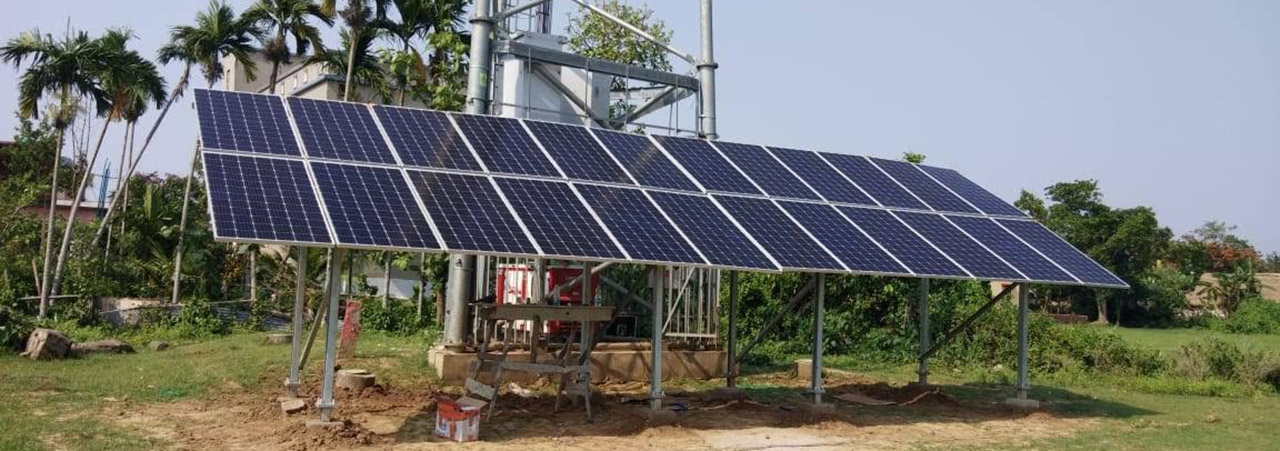
RIL's GHG Emissions
| Parameters |
Unit |
FY 2021-22 |
FY 2020-21 |
FY 2019-20 |
FY 2018-19 |
| Scope 1 CO2e |
million ton |
43.96 |
44.67 |
47.50 |
29.69 |
| Scope 2 CO2e |
million ton |
1.19 |
1.25 |
1.45 |
1.14 |
Reliance Jio has also been a
forerunner when it comes to
decarbonising its operation. Reliance
Jio Infocomm Limited (RJIL) has
received its highest ‘A-’ rating in CDP’s
2021 global rating of companies on
the way it manages its environmental
impacts. Jio is the only telecom and
digital services firm in India to receive
a leadership rating on CDP’s Global
Environment Impact. The Science
Based Targets initiative (SBTi) has
validated the corporate greenhouse
gas emissions reduction target(s)
submitted by RJIL. In FY 2021-22, the
Scope 1 emissions were 0.49 million
tonnes of CO2 and Scope 2 emissions
were 3.36 million tonnes of CO2. Jio
also calculates its Scope 3 emissions,
which accounted for 4.55 million
tonnes of CO2 in FY 2021-22. Jio has
also been able to reduce 51,574
tonnes of CO2 emission by procuring
power from renewable sources.
Reliance continues to meet
its growing energy demands
with sources that have minimal
environmental impacts. The total
renewable energy consumption
increased by 352% Y-o-Y. Hazira
manufacturing unit contributes significantly to the renewable energy
generation, and generated 13,60,181 GJ
in FY 2021-22. Reliance also co-fired
biomass with coal at its Dahej and
Hazira manufacturing units to reduce
dependence on natural resources.
Speaking at the International Climate
Summit 2021, Reliance Chairman and
Managing Director Shri Mukesh D.
Ambani expressed his optimism that
India can become the first country in
the world to produce Green Hydrogen
at less than US$ 1 per 1 kg in 1 decade
to meet the 1-1-1 target. India has
set the goal to reach 450 GW of
renewable energy capacity by 2030.
Reliance has committed to enable at
least 100 GW of solar energy by 2030,
leading to creation of a pan-India
network of kilowatt and megawatt-
scale solar energy producers who
can produce Green Hydrogen for
local consumption. This endeavour
by Reliance is aligned with its vision of
making India the first country globally
to make hydrogen affordable.

Jio-bp has made strategic
engagements to enable the Electric
Mobility ecosystem. Jio-bp has tied-
up with BluSmart, an all EV ride hailing
company operating in Delhi NCR for
providing their fleet with state-of-the-
art charging facilities.
Jio-bp also operationalised battery
swapping service under Vehicle as a
Service (VaaS) model with Swiggy, so
that their driver partners seamlessly
deliver food to customers and reduce
carbon footprints.
Jio-bp signed MoU with the Mahindra
Group in December 2021 to explore
the development of EV products
and services, alongside identifying
synergies in low-carbon and
conventional fuels. A MoU was also
signed with Piaggio and moEVing
for exploring some of the exciting
solutions in electric mobility space.
Ecosystems and
Biodiversity
Reliance conducts periodic
environmental impact studies for
biodiversity and marine ecosystems
surrounding its greenfield and
brownfield projects to assess the
ecological status and mitigate
negative impacts, if any, on the
neighbouring ecosystem.
The impactful greenbelt development
and habitat restoration efforts have
borne fruits as more than 2.3 crore
saplings have been planted across
India, covering more than 2,600 Ha of
green belt area till date. In FY 2021-22,
6 lakh + saplings were planted across
various sites, and 70 Ha of green belt
area was developed.
6 lakh+
(2.3+ crore since inception) Saplings
planted across various sites in India
during FY 2021-22
Waste Management and
Circular Economy
Reliance is a firm believer in the 3Rs
of a circular economy – Reduce,
Reuse, Recycle. The Company
collects, sorts, and recycles plastics
to reduce dependency on new
and virgin resources to improve
circularity in plastics.
The Company strongly focuses
on responsible and efficient
resource consumption. The waste
management initiatives go far
beyond regulatory compliances to
strengthen the circular economy.
Some of the initiatives taken by the
Company include:
- Recron® GreenGold™ Polyester
Staple Fibre (rPSF): Reliance recycles
over 2 billion PET bottles every year
to make Recron GreenGold Fibre.
Reliance has adopted an innovative
asset-light business model to
support entrepreneurs for setting
up toll manufacturing plant with
minimal market risk and augment
its recycling capacity.
- Green Polyolefin (gPO): Reliance
is developing green polyolefin
products, which are introduced
to the market as sustainable
packaging solutions for non-food
and non-pharma applications.
These products can be used in the
automotive segment, appliances,
paint pails, warehousing pellets, PE
films, HDPE blow moulding, HDPE
injection moulding and raffia bags.
- Waste to Road (W2R): Reliance has
developed an innovative product
for hard to recycle end-of-life
plastics called ReRoute™, which is
used in preparing roads.
- Reliance has collaborated with
India’s CSIR-National Chemical
Laboratory (CSIR-NCL) to recycle
COVID-19 PPE waste. Useful products
such as automotive components
and flowerpots are being made
from the recycled PPEs.
- Hazardous waste from Reliance
operations is recycled as alternate
fuels and raw material (AFR) for the
cement industry.
In FY 2021-22, the volume of waste disposed and recycled across the
Company’s operations for RIL and Jio stood at :
|
Parameters |
Unit |
FY 2021-22 |
| RIL |
| Hazardous waste (disposed) |
| Hazardous Waste diverted from disposal |
| Non-Hazardous waste (disposed) |
|
|
|
| Reliance Jio |
| Hazardous waste (disposed) |
| Non-hazardous waste (disposed) |
|
|
|
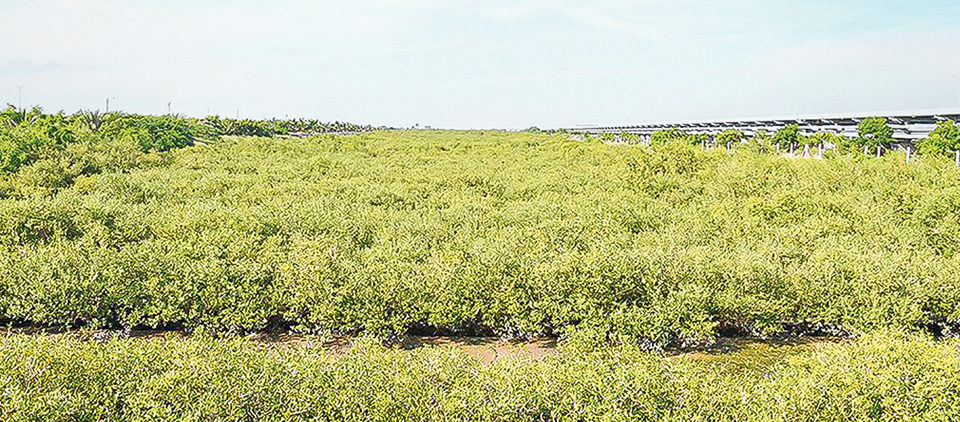
Additionally, Reliance Retail is
extremely conscious about the waste
it may generate and is proactive in
managing waste at every stage of
its product lifecycle. Re-usable totes
and crates are used to a large extent
to reduce generation of packaging
wastage. Supplier cartons are
re-used where possible. Reliance
Retail’s vision is to move towards 100%
paperless operations at its facilities.
Reliance Jewels uses carry bags
and envelopes made with recycled
paper at its stores.
Towards circularity
To grow responsibly in magnitude and
scale while satisfying all stakeholders
expectations lie at the core of
Reliance’s operation. The Company
recognises the need to move to
a low-carbon economy. It takes
proactive initiatives to accelerate
the change and has enhanced its
internal governance framework to
minimise and mitigate risk. Reliance is
working on a multipronged approach
covering various aspects of the
circular economy through a cradle-
to-cradle approach. It has identified
short, medium and long term
strategies to accelerate the progress
of circularity for plastics. In the short
term, the focus is on increasing the
Company’s PET recycling footprint
and usage of Multi-layered Plastics
(MLP) for road construction. In the
medium term, it is focusing on
polyolefin recycling. In the long term,
the Company is looking at chemical recycling alternatives such as Waste
to Oil (W2O) and Hydrothermal
Liquefaction (HTL), among others.
Reliance supports projects that
encourage circularity, such as the
development of the R|ELANTM fabric, in
recognition of the growing consumer
preference for environmentally-
friendly products. The Company
is also developing commercial
scale continuous catalytic pyrolysis
technology. The process has been
successfully demonstrated as a pilot
delivering promising results to convert
unsegregated mixed waste plastics
into Pyrolysis Oil. These products have
significant scope in accelerating
global circularity.
Reliance Retail’s packaging is based
on the core principle of a Sustainable
Circular Economy. The 3Rs for Retail
business stands for:
Reduce: Reduction of usage of
packaging material and packaging
material waste.
Reuse: Multi-use packaging instead
of single-use/ single time packaging.
Recycle: Converting waste
packaging into materials for new
packaging items.
Packaging Design Approach
Targeted for Sustainable
Packaging
For Reliance’s brand Hamleys, the
plush toys developed out of India
are made of 100% sustainable fibre
sourced from the Company.
30% (~54K units) of Hamley’s
e-commerce orders are fulfilled by
Reliance’s re-useable gamified, up
cycled packaging.
Green Initiatives - Packaging Design & Application

Pallet
Pallets are
developed with
30% recycled
HDPE instead
of 100% new
polymer
Recycle

Shelving Bin
Multiple use
plastic bins
instead of
corrugated
paper bin box
Reuse

Delivery Tote
Multi use Totes
deployed for
primary &
secondary
movement in
place of single
use plastic bags
and corrugated
boxes
Reuse

Delivery Bags
Development
of multiple
use customer
delivery bags.
Each delivery
bag is made
from R Elan Green
Gold fabric using
~10 PCR_PET
bottles
Recycle

Tote Partition
Minimum use
of corrugated
paper partition to
avoid damages
due to rattling,
replacing
conventional
(non-
biodegradable)
Bubble Film
& Inflated Air
Packaging
Reduce

Protective Pack
In-house
corrugated
packaging waste
in shredded
protective
packaging
Recycle

Reliance converts more than 2 billion
post-consumer PET bottles. Reliance
plans to double its PET recycling
capacity to 5 billion PET bottles by
setting up a recycled polyester staple
fibre (PSF) manufacturing facility in
Andhra Pradesh. Reliance’s R|Elan™
Green Gold converts polyester from
ocean bound plastic into high quality
branded polyester. The Company
introduced a new product, R|Elan™
Ecogold, with Ciclo, one of the most
environment-friendly fabrics that
encourages sustainable fashion
across different segments.

Reliance is driving various initiatives
such as Fashion for Earth in
partnership with Lakmé Fashion
Week and the United Nations in
India, Hub Excellence Programme
and Circular Design Challenge to
inculcate circularity and sustainability
concepts in polymer, textile, and
fashion industries.
Satyajit Vetoskar’s ‘Bandit’ label of
accessories at the FDCI x Lakmé
Fashion Week in March 2021 was
the winner of the Circular Design
Challenge. David Abraham and
Rakesh Thakore for their label
Abraham and Thakore presented
a collection created from recycled
PET under the theme “Assemble,
Disassemble and Reassemble” as a
pre-launch initiative.
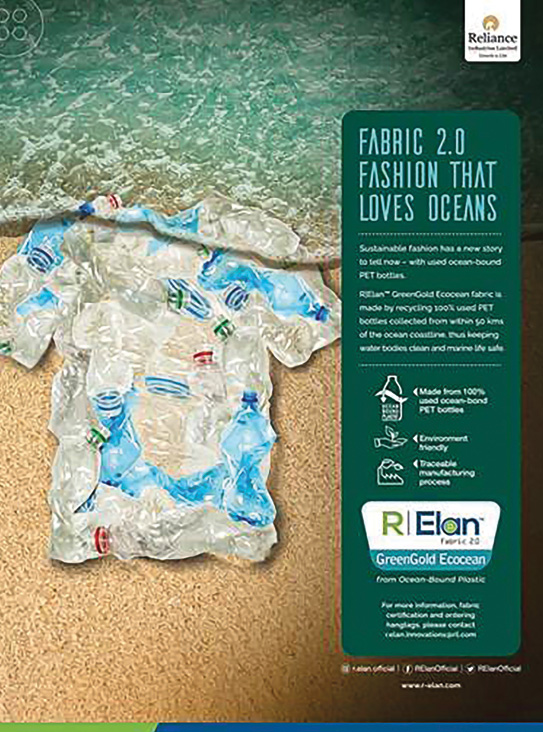
Water and Effluent
Management
Water is a critical resource used
in the operations. With Reliance’s
philosophy to reduce freshwater
dependence, the Company has
commissioned state-of-the-art
technologies to reduce specific
freshwater consumption, maximise
recyclability and minimise external
discharge. The world-class
desalination unit at Jamnagar
provides strategic advantage in terms
of water management.
Reliance continues to focus on
maximising wastewater recyclability
and reusability of treated water.
The treated effluent is reused in
cooling towers, horticulture activities
and firewater networks. Rainwater
harvesting capacities are being
augmented to 3,17,669 kL across
RIL. All the manufacturing divisions
have water efficient faucets and
reuse treated wastewater for
domestic purposes.
Reliance Retail in FY 2021-22 has made
significant Investments in automation
to improve operational efficiency and
productivity in its quest to reduce
overall water consumption. The
Company has employed mechanised
crate washers at fruits and vegetable
processing centres that have reduced
the consumption of water.
In FY 2021-22, the total water
withdrawn for RIL stands at
224.19 million kilolitre out of which
32.94 million kilolitre was discharged
and 103.54 million kilolitre was
recycled. Additionally, the E&P vertical
reported on 5.25 million kilolitre of
produced water.
RIL'S WATER CONSUMPTION
BY SOURCE
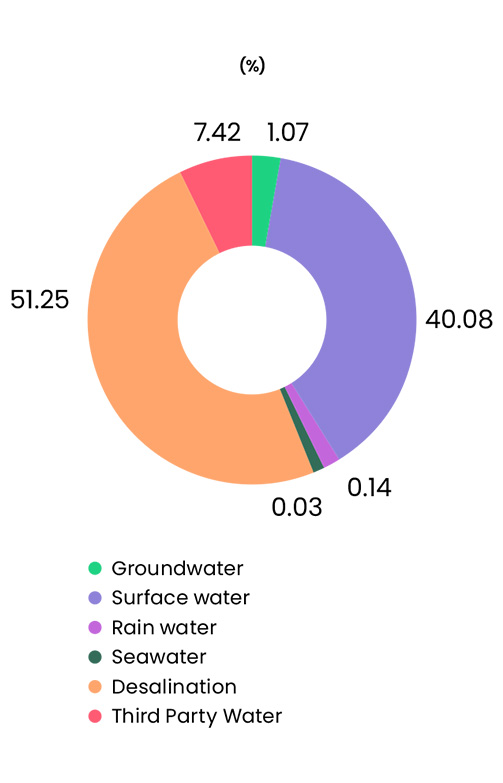
Way Forward
Reliance is going through a
transformative phase. With
its commitment to be Net
Zero by 2035, it is investing
heavily across all the levers
of decarbonisation and
changing its business which
previously was heavily
dependent on fossil fuels
to new avenues of energy.
The Company has planned
significant investments in
the next decade and will
work along with strategic
collaborators/partners to
help India and the world
transition to clean and
green energy.
